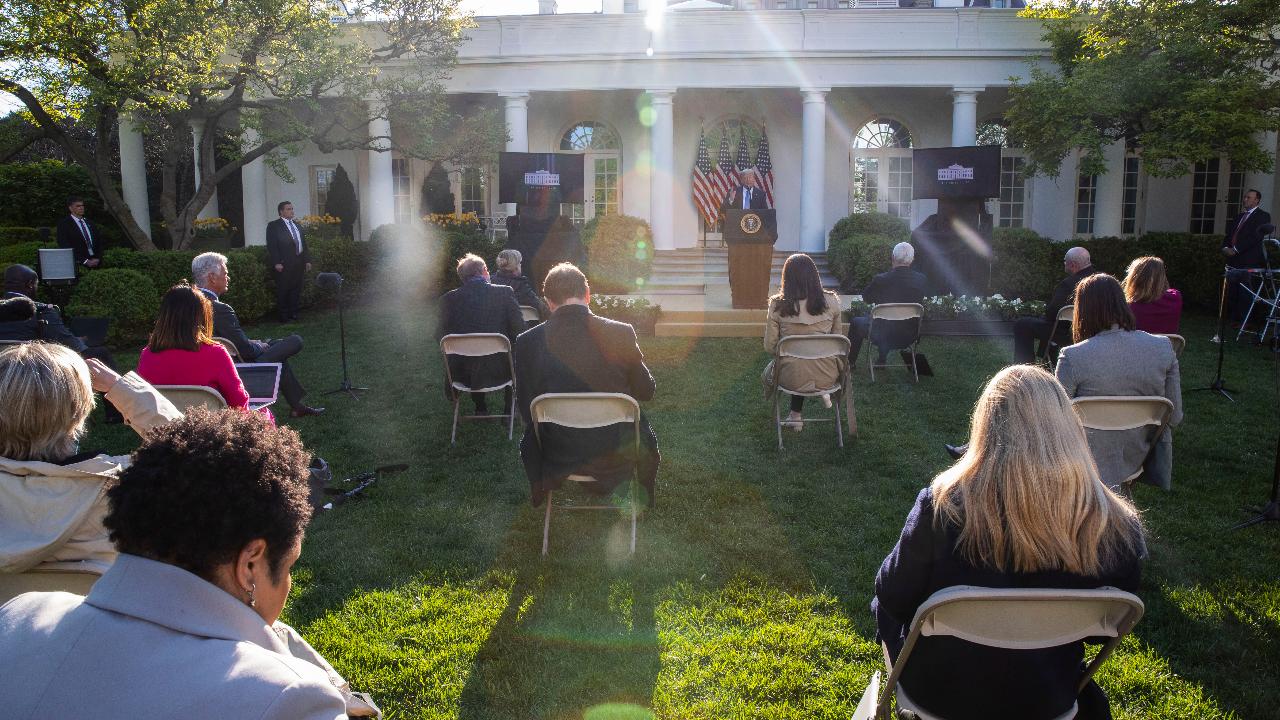Retailers, labs step up coronavirus testing as country preps to re-open
To date, the U.S. has conducted roughly 5.5 million tests, according to the COVID-19 tracking project.
Get all the latest news on coronavirus and more delivered daily to your inbox. Sign up here.
As states across the country begin to re-open their economies, President Trump promised Monday that “testing is not going to be a problem at all.”
Returning to the White House Rose Garden for a briefing after two days of no updates from Trump or the coronavirus task force, the president was accompanied by the top healthcare and retail executives, several of whom were in the same location more than a month and a half ago to discuss testing for the coronavirus.
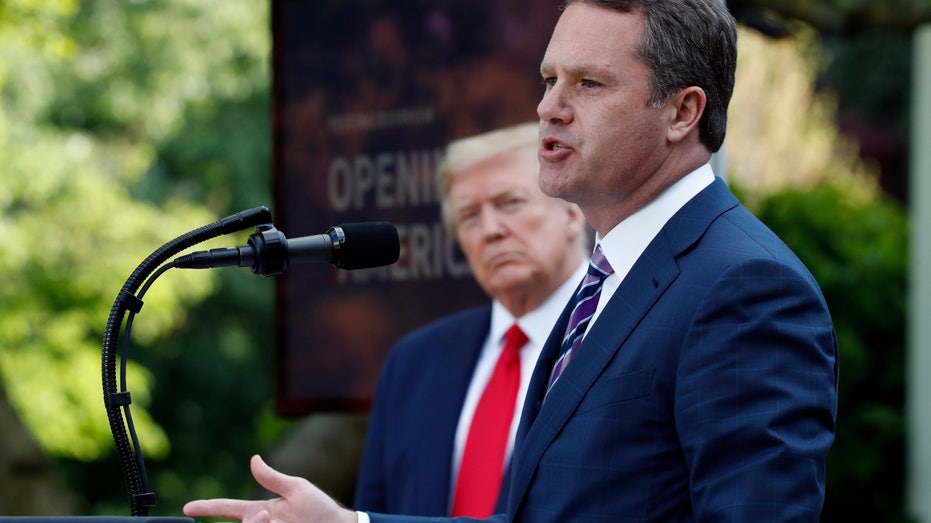
President Donald Trump listens as Doug McMillon, CEO of Walmart, speaks about the coronavirus in the Rose Garden of the White House, Monday, April 27, 2020, in Washington. (AP Photo/Alex Brandon)
Walmart CEO Doug McMillon said America’s largest retailer now has 20 testing sites across 11 states and "by the end of May we’ll be at 100” locations.
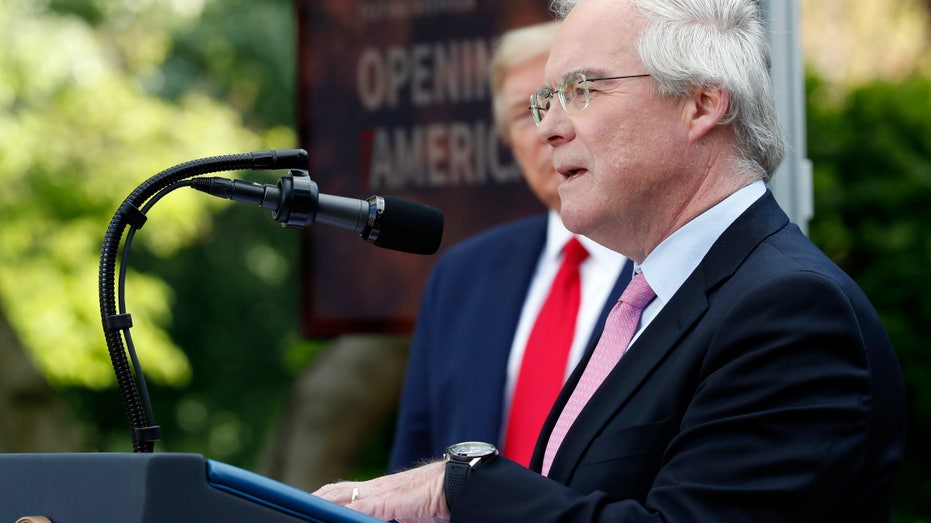
President Donald Trump listens as Rodney McMullen, CEO of Kroger, speaks about the coronavirus in the Rose Garden of the White House, Monday, April 27, 2020, in Washington. (AP Photo/Alex Brandon)
The CEO of Kroger, Rodney McMullen, said his company will “accelerate” adding testing sites and added that his company will expand from a half dozen states to a dozen by May.
| Ticker | Security | Last | Change | Change % |
|---|---|---|---|---|
| WMT | WALMART INC. | 129.02 | -2.16 | -1.65% |
| KR | THE KROGER CO. | 70.10 | +2.60 | +3.85% |
WHITE HOUSE UPDATES CORONAVIRUS TESTING GUIDELINES AS STATES BEGIN TO REOPEN ECONOMIES
As for labs, they too promised a ramping up of testing as well.
Adam Schechter, the CEO of LabCorp, said “just 45 days ago we said we could do several thousand tests a day and we can now do 60,000 tests a day, and we're continuing to expand that capacity every single day.”
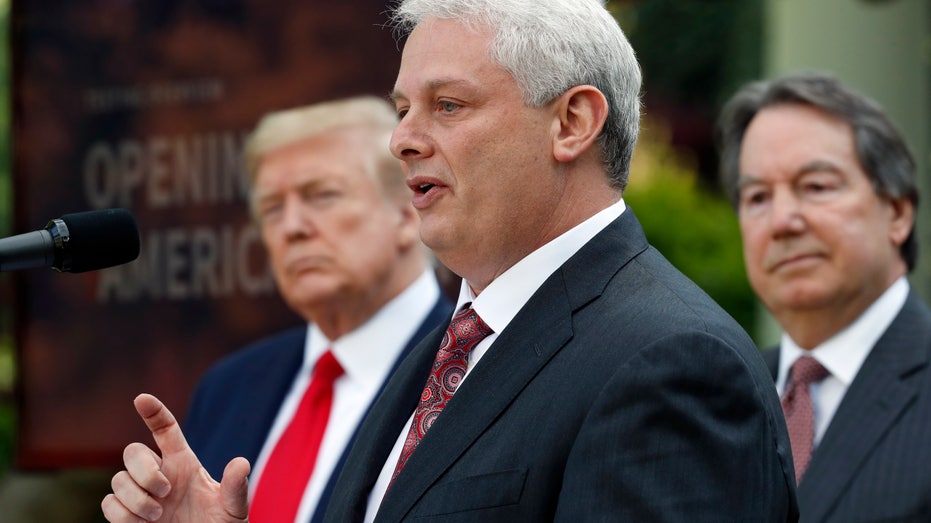
Adam Schechter, president and CEO of LabCorp, speaks about the coronavirus in the Rose Garden of the White House, Monday, April 27, 2020, in Washington, as President Donald Trump and Stephen Rusckowski, CEO of Quest Diagnostics. listen. (AP Photo/Ale
Steve Rusckowski, Chairman & CEO of Quest Diagnostics, said he and his company have been “pushed by the task force to bring up” their testing numbers and expect to double his company’s capacity of 50,000 tests per day within the next month.
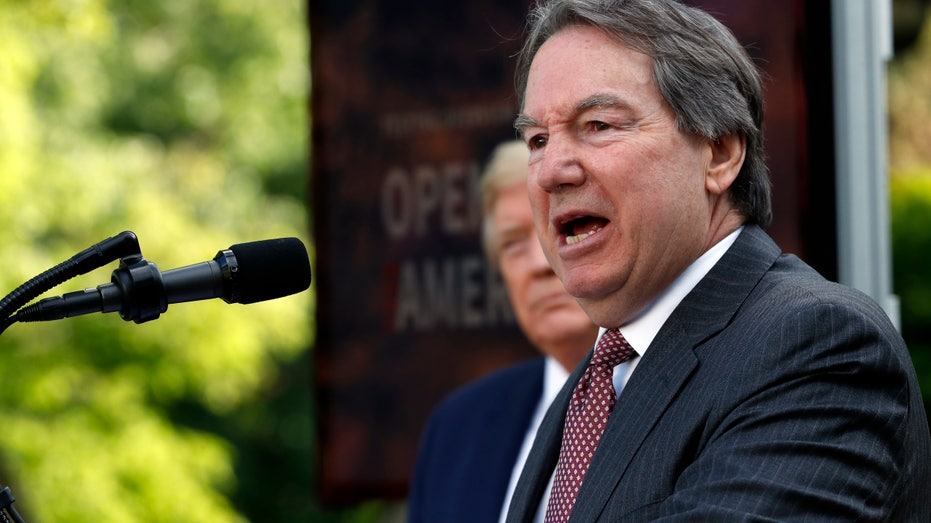
Stephen Rusckowski, CEO of Quest Diagnostics, speaks about the coronavirus in the Rose Garden of the White House, Monday, April 27, 2020, in Washington. (AP Photo/Alex Brandon)
In addition, both companies vowed to make testing more convenient for the average person.
Rusckowski promised that “convenience will improve as well with convenient solutions that will be to swab individuals more easily and also deliver to consumer the ability to have consumers choose a test on line with a telehealth provider.”
Schechter added that his company's Pixel by Labcorp at-home test, which currently is used for health care workers on the front lines of the pandemic and first responders, will be made available to more people in the coming weeks, with the promise of "no up front costs for the individual consumer."
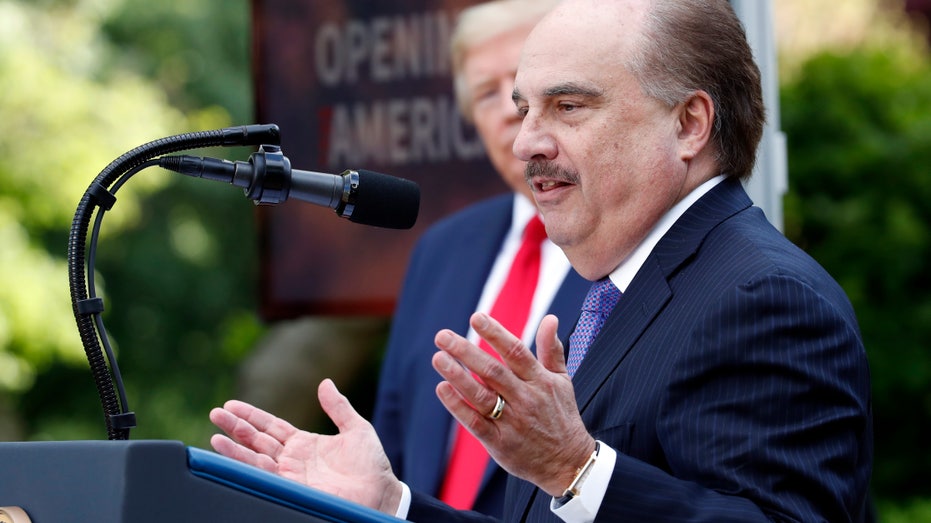
Larry Merlo, CEO of CVS, speaks about the coronavirus in the Rose Garden of the White House, Monday, April 27, 2020, in Washington, as President Donald Trump listens. (AP Photo/Alex Brandon)
CVS Health CEO Larry Merlo also said that his company is working to make testing more convenient at their pharmacies by ramping up the ability for self-swab tests. CVS retail stores will begin offering self-swab tests at some locations in May, with plans to equip up to 1,000 stores by the end of the month. CVS Health stores are expected to be capable of conducting 1.5 million tests per month, depending on supplies and lab availability.
| Ticker | Security | Last | Change | Change % |
|---|---|---|---|---|
| LH | LABCORP HOLDINGS INC. | 274.06 | -3.21 | -1.16% |
| DGX | QUEST DIAGNOSTICS INC. | 191.25 | +0.54 | +0.28% |
| CVS | CVS HEALTH CORP. | 75.77 | -2.58 | -3.29% |
SBA CORONAVIRUS STIMULUS LOAN DEMAND DOUBLES, SLOWS PAYCHECK PROTECTION APPLICATIONS
Adm. Brett Giroir, Assistant Secretary of Health and Human Resources promised, “We will be able to supply every state with the supplies and tests they need that will dramatically increase the number of tests we’ve done."
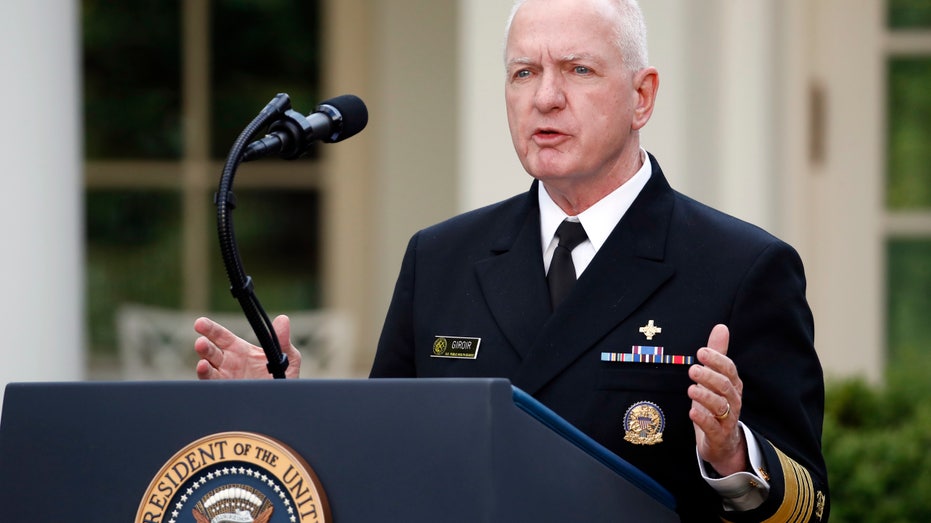
Adm. Brett Giroir, assistant secretary of Health and Human Services, speaks about the coronavirus in the Rose Garden of the White House, Monday, April 27, 2020, in Washington. (AP Photo/Alex Brandon)
Vice President Mike Pence added that with the increase by this public-private partnership in testing, the U.S. could see some two million tests per week.
GET FOX BUSINESS ON THE GO BY CLICKING HERE
To date, the United States has conducted roughly 5.5 million tests, according to the COVID-19 tracking project.
A report by Harvard University estimates we would need at least 5 million tests per day by early June to help ensure a safe re-opening, and that the number will need to increase to 20 million tests per day in order to fully re-open the U.S. economy and keep it open.
There are more than 987,000 confirmed coronavirus cases and more than 56,000 deaths in the United States, according to Johns Hopkins University's latest update.




















